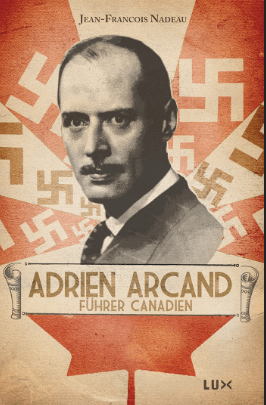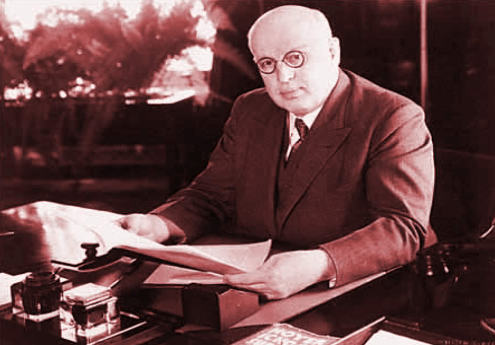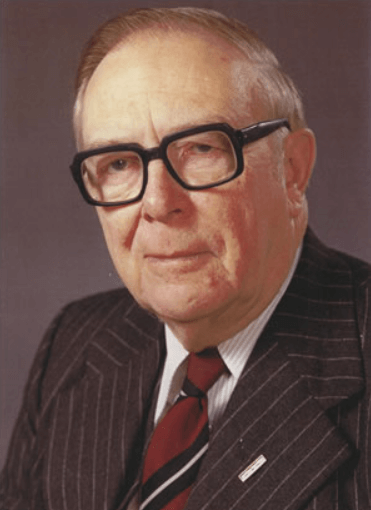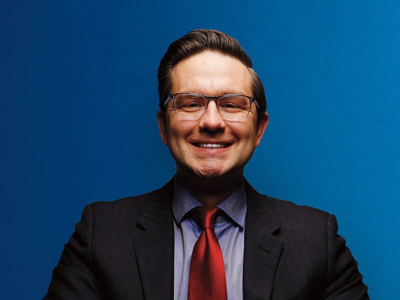Please follow Cooper’s telegram channel “Honkey Night in Canada.” As always, the indent blocks are my commentary.
Who can lay claim to the legacy of 19th/20th century Populism? According to Stephen Harper’s keynote address at the Canada Strong and Free Network’s 2023 conference, the answer is Preston Manning’s Reform Party, in which Harper was a major figure. In Harper’s defining of populism, he referred to movements of the left, right and centre, who all had in common a concern for the hoi polloi, against the interests of industrialists, bankers, and others “who possessed enormous, monopolistic, economic power…were actually quite small in number and…headquartered in organizations hundreds or even thousands of miles away”. The desire to represent working people culminated in movements such as Huey Long’s “Share our Wealth” platform, or more locally, the Social Credit Party in Alberta (which Harper name drops).
Canadian nationalists are well-acquainted with Adrien Arcand, but I am personally more interested in “Bible” Bill Aberhart, who led Alberta’s Socreds until his death in 1943. A discussion of Socred history and policy is too broad for this article, but in relation to Harper’s comments, we can focus on two initial points of Aberhart’s platform: adherence to social credit monetary theory, and its resultant anti-semitism.
I actually am quite unfamiliar with the Canadian populists of years past, and had never heard of Adrien Arcand. In short, he was a Canadian fascist, who started as a labour activist. Not a butthole-left fake labour activist, a real one. And of course, being a strong activist for the working class, he was also a strong opponent of immigration.

The thinker behind social credit theory was Major C.H. Douglas, a British engineer. Douglas’ major concern was that the salaries, wages, and dividends paid to workers was less than the prices of the goods they produced within a pay period. He attributed this disparity to capitalism’s tendency of creating profits solely for economic powerhouses and sought to raise workers’ purchasing power to match production. This perspective may remind readers of a British ideologue more familiar in our ranks: Oswald Mosley. He saw “a deliberate and planned equation of production and consumption” as the way to increase living standards for common people in the age of automation. Indeed, the Douglas quote “systems were made for men, and not men for systems” could easily have come from Mosley’s mouth.
Major Douglas in his handbook, “Social Credit”, accused Jews of controlling European nations through socialism, communism, as well as big business. To Douglas, “monopoly capitalism” had its foundations in Judaism (Stingel, p. 18). Aberhart’s views on the Jew question are admittedly nebulous. He publicly repudiated anti-Semetism, and, as a Christian preacher, did acknowledge the significance of Jews in the Bible. His religion, though, also made him an anti-zionist, believing that Jews would not reclaim the Holy Land because they denied Christ. Additionally, Aberhart’s embracing of social credit necessitated an innate anti-semitism, being the theory was expressly against international finance, and such parties were Jew (as Douglas noted). Aberhart allowed anti-semitic sentiment to permeate Socred propaganda during his leadership and did not stifle the voices of out-and-out anti-semitic voices such as Norman Jaques (Stingel, p. 36). Writes Stingel: “Social Credit was the only democratically elected party in Canada whose political and economic philosophies were based on anti-semetism” (Stingel, p. 4).

William Aberhart
In the wake of Aberhart’s death, his second-in-command, and the Socreds’ new leader, Ernest Manning, began instituting major changes. The party sprung up as “a coalition of reformers, including working-class social democrats, the unemployed, small business owners, and farmers placed in jeopardy by the Depression” (Finkel, inside cover). With Manning running the show it became a typical social-conservative, pro-business entity. Although some redirection can be seen in the later-Aberhart years (1940-43), Manning was responsible for a “redefining of Social Credit objectives” and was personally opposed to “universal” social programs. Any notion of wealth redistribution (which Aberhart supported) was firmly eschewed by Manning in favour of driving economic growth (Finkel, p. 215-217).
In 1947 Ernest Manning began a full-scale purge of anti-semites from his party. At the time, Jew-related rhetoric had been increasing, not dissipating, and his initial efforts proved destabilizing. As splinter groups broke from Manning’s authority, it seemed that the movement itself might be destroyed. Ernests Manning did, in fact, wrangle the Socreds back together after this power struggle (Stingel, p. 5). Ultimately, the party was completely flipped on its head, ideologically.

Ernest Manning
Here is Stephen Harper’s description of the Aberhart to Manning transition (from the aforementioned address):
“When Aberhart died in 1943 his young lieutenant, Ernest Manning, converted that populism into what was, policy-wise, a largely mainstream conservative party…you know it’s now conventional to remember social credit for its quote ‘funny money’ ideas [a pejorative term for prosperity certificates], which Aberhart had actually discarded, which – oh sorry – which Manning had actually discarded. As well, it’s also remembered for some of the other peculiarities of the era, which by the way, were peculiarities in a lot of other places at the time, not just in Alberta”.
I am not sure what Harper means by “peculiarities”. It could be a reference to pro-Goyim sentiment, or reform-minded monetary ideas. That is up to speculation. What is clear, is that Harper’s view of the events matches what I’ve written above. When Harper goes on to frame his partner, Preston Manning (Ernest’s son) as the heir to a populist legacy, what he’s actually inheriting is a great subversion of populism. This was Conservative gate-keeping 1.0.
At the same CS&FN Conference, Harper and Manning sat down to discuss the Reform movement and its successes. For those unaware, Reform, which became the Alliance Party, was a PPC-tier organization that dog-whistled to immigration skeptics and the like, while muzzling actual right-dissidents.
Let’s briefly check in with Maxime Bernier and the “dissident” PPC movement.


Yep. Still fake.
The two bragged about how they made balancing the budget a central issue at a time when, by their own admission, only 20% of Canadians cared about such a thing. Manning boasted that by the 1993 federal election, that percentage had doubled. Harper then went on to say that shaping public opinion is the role of elected officials. Of course, populism is based on representing the will of the common man, not diverting his attention to some Mises-tier economic decoy.
To some small extent I feel the need to pushback on this. People don’t always know exactly what they want, and the idea that populists don’t need to change people’s minds on certain things is an overly strong statement. Pure propaganda is overrated, and political organization is underrated. But normal people do have some propagandizing that needs to be undone. It is not for nothing that Adolf Hitler was praised as a miraculous speaker.
That’s totally different from consubversative garbage about muh free markets, of course.
Stephen Harper is far from a man of the people, having been mentored by prolific political consultant and best-kept-secret, Arthur Finkelstein (yes, that one). Finkelstein, nicknamed the Merchant of Venom, had a modus operandi centred around attacking one’s opponents relentlessly to change public perception. This legendary strategist did not back away from challenges, saying in relation to Brian Mulroney’s ‘88 campaign, “We have to convince Canadians to drink pig piss”. Finklestein’s work with the National Citizens Coalition (a conservative lobby group) “would have an enormous influence on Stephen Harper’s political career”. (Harris, p. 18-19). Harper employed Finkelstein as a pollster in 1998 (p. 35), and in turn Finkelstein would refuse to back Stockwell Day’s bid against Harper for leader of Alliance (p. 36).
Harper had many other prestigious Jews behind him by the time 2005’s CPC convention rolled around. David Frum co-wrote Harper’s speech at the convention. Fundamentalist Stockwell Day helped bring in Jew support by way of evangelical Christians (“the strongest supporters of Israel”). Harper’s personal commitment to zionism cemented funding from Jew tycoons Gerald Schwartz, Heather Reisman, and Robert Lantos among others (Harris, p. 42-43). These are the same types of plutocrats C.H. Douglas railed against.
When Harper ascended to power as Prime Minister in 2006, he did so with help of Jew oligarchs and propagandists, by way of American Republican talking points, and in his own words, through a voting block “similar to what George Bush has tapped”. In the past months I have described how today’s crop of Canadian Neoconservatives, perfectly encapsulated in Harper, is alien to the traditional Canadian right. I have already made that clear. The point today is that they have neither a right to John A.’s legacy, or that of Bill Aberhart.
Offline Sources
Finkel, Alvin “The Social Credit Phenomenon”
Harris, Michael “Party of One”
Stingel, Janine “Social Discredit”
David Frum is one of my most hated persons currently walking this Earth. He, the most famous of the WMD Liars, teamed up with SFU to put on a show titled “life in the disinformation age.” The point of it was that all these trillion dollar corporations like Facebook, Google, etcetera, need to censor us Goy-Peasants, because of the harms of disinformation.

Which is funny, because I don’t recall hundreds of thousands of innocent people being murdered because of anything I ever said. David Frum, not so much.

Some populists that Harper’s got around him. He didn’t do anything for you when he was in office, but I’m sure he’s about to this time around.
















[…] Cooper: Refuting Reform […]